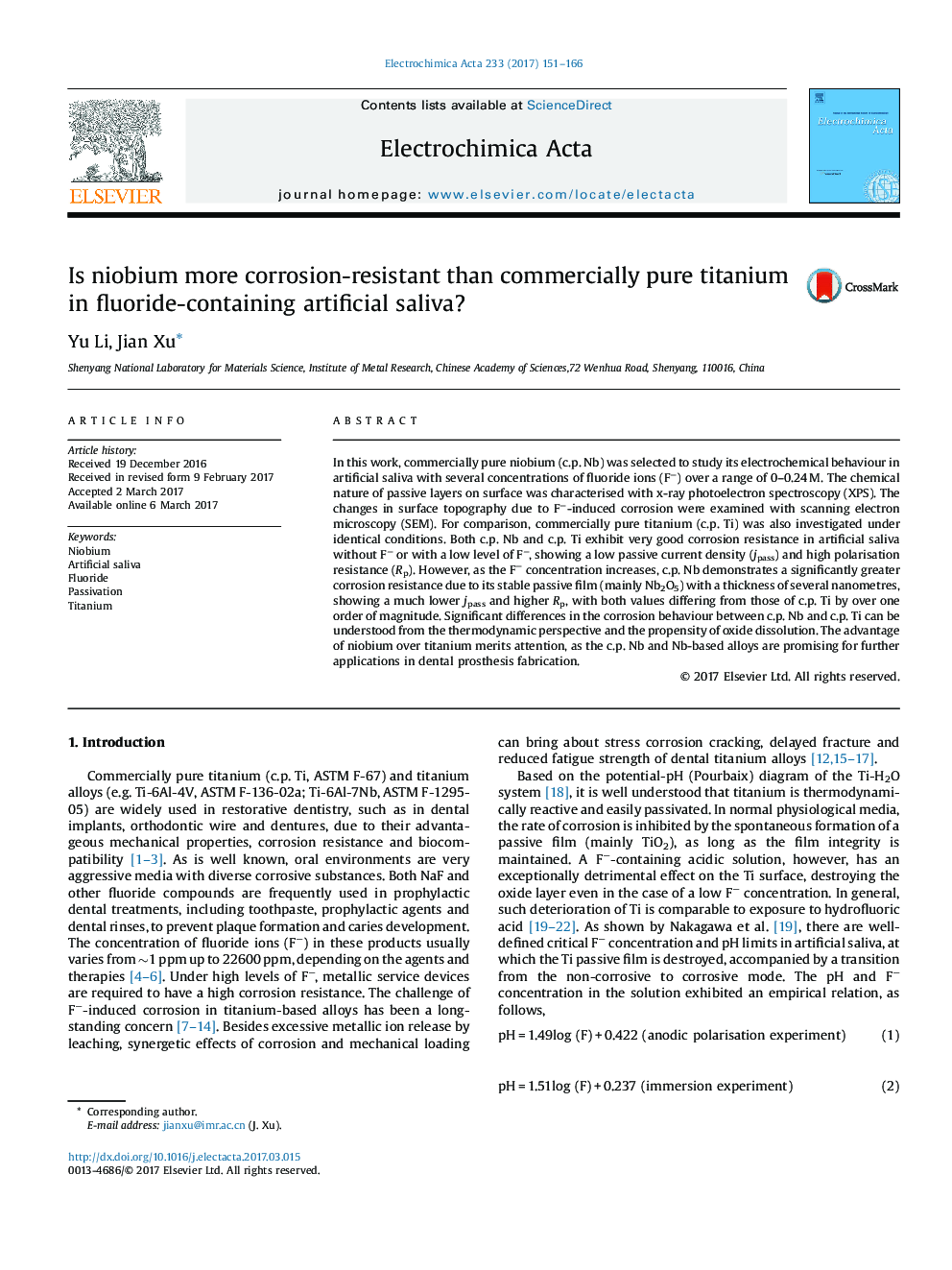| Article ID | Journal | Published Year | Pages | File Type |
|---|---|---|---|---|
| 6471450 | Electrochimica Acta | 2017 | 16 Pages |
â¢Electrochemical behavior of c.p. Nb in fluoride-containing artificial saliva.â¢c.p. Nb manifests excellent corrosion resistance due to its stable passive film.â¢Passivation of c.p. Nb can be retained even in solution with high level of Fâ.â¢Advantage of Nb over Ti renders new interest for application as dental prosthesis.
In this work, commercially pure niobium (c.p. Nb) was selected to study its electrochemical behaviour in artificial saliva with several concentrations of fluoride ions (Fâ) over a range of 0-0.24Â M. The chemical nature of passive layers on surface was characterised with x-ray photoelectron spectroscopy (XPS). The changes in surface topography due to Fâ-induced corrosion were examined with scanning electron microscopy (SEM). For comparison, commercially pure titanium (c.p. Ti) was also investigated under identical conditions. Both c.p. Nb and c.p. Ti exhibit very good corrosion resistance in artificial saliva without Fâ or with a low level of Fâ, showing a low passive current density (jpass) and high polarisation resistance (Rp). However, as the Fâ concentration increases, c.p. Nb demonstrates a significantly greater corrosion resistance due to its stable passive film (mainly Nb2O5) with a thickness of several nanometres, showing a much lower jpass and higher Rp, with both values differing from those of c.p. Ti by over one order of magnitude. Significant differences in the corrosion behaviour between c.p. Nb and c.p. Ti can be understood from the thermodynamic perspective and the propensity of oxide dissolution. The advantage of niobium over titanium merits attention, as the c.p. Nb and Nb-based alloys are promising for further applications in dental prosthesis fabrication.
Graphical abstractDownload high-res image (160KB)Download full-size image
